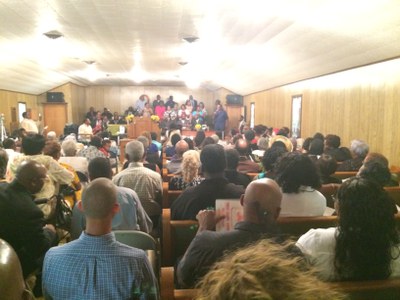
African Americans’ memories of the Great Migration and urban displacement surface in popular culture as a desire to return to rural homeplaces while retaining access to opportunity in urban meccas. The author identifies real examples of this “limbo imaginary” while engaged in ethnographic study of rural freedom colonies (settlements Black Texans founded 1865–1930). Results indicate that, for African Americans, embodying urban-rural liminality is an existential space of opportunity and ingenuity. Urban baby boomers in the study call rural black meccas (freedom colonies) home and hold dual senses of belonging and commitments to place preservation. These baby boomers performed liminality during homecoming celebrations where they commemorated ancestors and reconnected descendants’ ties to settlements severed during the Great Migration. She asserts that scholars and practitioners should help communities identify liminal spaces and performative practices that bridge and bond urban-rural social capital thereby catalyzing community preservation. These practices comprise what she calls a freedom colony planning repertoire.
Andrea Roberts is an assistant professor of urban planning; Associate Director, Center for Housing and Urban Development; and Faculty Fellow of the Center for Heritage Conservation as well as the Institute for Sustainable Communities at Texas A&M University, where she teaches planning history and theory, community revitalization, and preservation policy and planning. She is the founder of Texas Freedom Colonies Project, LLC/The Texas Freedom Colonies Project, a research and social justice initiative documenting placemaking history and grassroots preservation practices in the African Diaspora.